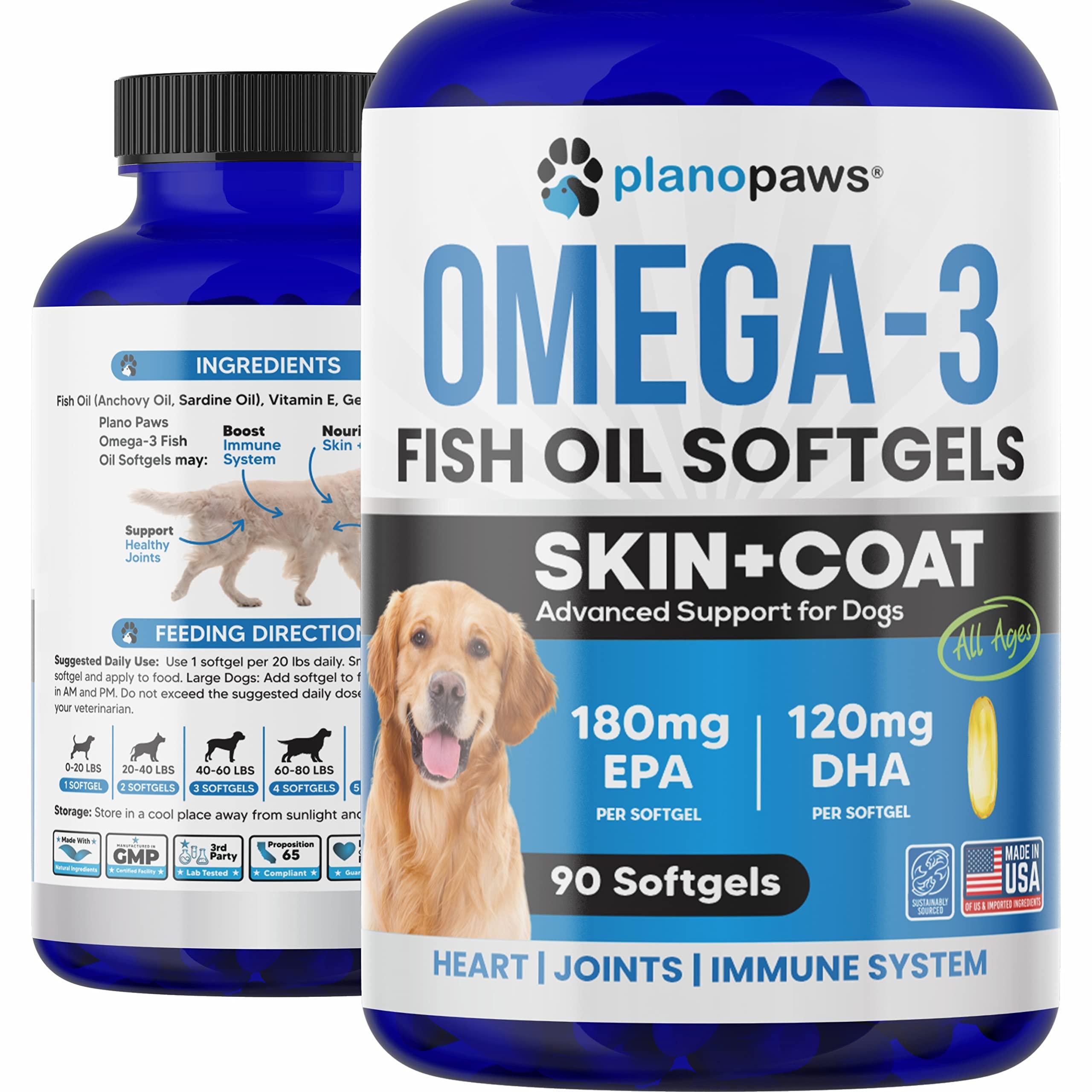When it comes to the well-being of our beloved canine companions, we always strive to provide them with the best care possible. Just as we look for ways to enhance our own health, our furry friends can also benefit from certain supplements that support their overall vitality. One such supplement that has garnered attention is fish oil. Renowned for its rich content of omega-3 fatty acids, fish oil can play a significant role in promoting the health of your dog. From improving coat shine to supporting joint health and boosting the immune system, the benefits of fish oil are manifold. In this article, we will explore how incorporating fish oil into your dog’s diet can enhance their quality of life, offering practical insights and tips for pet owners eager to nurture their pets’ health with love and care.
Understanding the Nutritional Value of Fish Oil for Your Furry Friend
Fish oil is a treasure trove of essential nutrients that can significantly enhance your dog’s overall well-being. At its core, fish oil is rich in omega-3 fatty acids, particularly EPA (eicosapentaenoic acid) and DHA (docosahexaenoic acid). These powerful components are known for their anti-inflammatory properties, which can be particularly beneficial for dogs suffering from joint pain or arthritis. Including fish oil in your pet’s diet can also lead to a shinier coat and healthier skin, reducing issues like itching and dandruff.
- Heart Health: Omega-3s support cardiovascular health, helping to maintain a healthy heart rhythm and reduce the risk of heart disease.
- Brain Function: DHA is crucial for brain development and function, making it especially beneficial for puppies and senior dogs.
- Immune Support: Regular intake can enhance the immune system, aiding in the defense against common illnesses.

Promoting a Shiny Coat and Healthy Skin with Omega-3 Fatty Acids
Incorporating fish oil into your dog’s diet can work wonders for their coat and skin health. The Omega-3 fatty acids found in fish oil, such as EPA and DHA, are essential for maintaining a lustrous coat and preventing dry, flaky skin. These powerful nutrients help to reduce inflammation, which can alleviate itching and discomfort, making your furry friend feel more comfortable in their own skin.
- Hydration Boost: Omega-3s help to lock in moisture, keeping your dog’s skin hydrated and reducing dandruff.
- Reduced Shedding: Regular fish oil supplementation can lead to less shedding, making grooming sessions easier and your home cleaner.
- Shiny Coat: A regular dose of fish oil can enhance the natural shine of your dog’s coat, making it appear healthier and more vibrant.
By ensuring your dog receives adequate Omega-3s, you are not only promoting a shiny coat but also supporting their overall skin health, which is a vital aspect of their well-being.
Supporting Joint Health and Mobility in Aging Dogs
As our furry companions age, maintaining their joint health and mobility becomes crucial to ensure they continue to enjoy their daily adventures. Incorporating fish oil into their diet can be a game-changer. Rich in Omega-3 fatty acids, fish oil provides anti-inflammatory properties that can help alleviate joint stiffness and discomfort. This can lead to increased mobility and a more active lifestyle for your beloved pet.
- Reduces inflammation: Omega-3s help decrease inflammation in the joints, offering relief from arthritis symptoms.
- Improves flexibility: Regular intake may enhance joint flexibility, allowing for smoother movements.
- Supports cartilage health: By promoting healthy cartilage, fish oil aids in sustaining joint function over time.
Incorporating fish oil into your dog’s diet not only supports their joints but also contributes to overall well-being, making it a worthy addition to their daily routine. Always consult with your veterinarian to determine the appropriate dosage tailored to your dog’s specific needs.
Guidelines for Safely Introducing Fish Oil into Your Dogs Diet
When considering the addition of fish oil to your dog’s diet, it’s important to do so safely and effectively. Begin by consulting with your veterinarian to ensure it’s a suitable choice for your pet’s specific needs. Start with a small dosage, gradually increasing to the recommended amount to allow your dog’s system to adjust. This slow introduction helps to prevent any potential digestive upset.
- Choose a high-quality fish oil: Opt for a product that is specifically formulated for dogs and has undergone rigorous testing for purity and potency.
- Monitor your dog’s reaction: Keep an eye on your pet for any signs of allergies or adverse reactions, such as itching or gastrointestinal issues.
- Store properly: Ensure the fish oil is stored in a cool, dark place to maintain its efficacy and prevent it from going rancid.
By following these guidelines, you can safely enhance your dog’s diet with the numerous benefits that fish oil provides, supporting their overall health and well-being.

